See also
- "2 Be Loved (Am I Ready), by Lizzo, 2022
- "2 B Loved", a song by Janet Jackson from the album Unbreakable (2015)
To Be Loved is a 2013 album by Michael Bublé.
To Be Loved may also refer to:
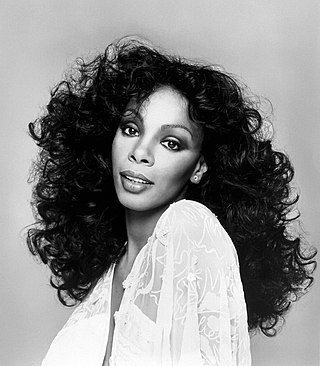
Donna Adrian Gaines, known professionally as Donna Summer, was an American singer and songwriter. She gained prominence during the disco era of the 1970s and became known as the "Queen of Disco", while her music gained a global following.

Lionel Brockman Richie Jr. is an American singer, songwriter, record producer, and television personality. He rose to fame in the 1970s as a songwriter and the co-lead singer of the Motown group Commodores; writing and recording the hit singles "Easy", "Sail On", "Three Times a Lady" and "Still", with the group before his departure. In 1980, he wrote and produced the US Billboard Hot 100 number one single "Lady" for Kenny Rogers.

Leslie Sebastian Charles, known professionally as Billy Ocean, is a Trinidadian-born British singer and songwriter. Between 1976 and 1988, he had a series of hit songs in the UK and internationally.

Céline Marie Claudette Dion is a Canadian singer. Referred to as the "Queen of Power Ballads", she is noted for her powerful and technically skilled vocals. Her music has incorporated genres such as pop, rock, R&B, gospel, and classical music. Her recordings have been mainly in English and French, although she has also sung in Spanish, Italian, German, Latin, Japanese, and Chinese.

Enrique Miguel Iglesias Preysler is a Spanish singer and songwriter. He started his recording career in the mid-1990s on the Mexican label Fonovisa and became the bestselling Spanish-language act of the decade. By the turn of the millennium, he made a successful crossover into the mainstream English-language market. He signed a multi-album deal with Universal Music Group for US$68 million with Universal Music Latino to release his Spanish albums and Interscope Records to release English albums.

Richard Paul Astley is an English singer. He rose to fame through his association with the production trio Stock Aitken Waterman; releasing the 1987 album Whenever You Need Somebody, which sold 15 million copies worldwide. His debut single "Never Gonna Give You Up" was a No. 1 hit in 25 countries, winning the 1988 Brit Award for Best British Single. His 1988 single "Together Forever" became his second song to top the US Billboard Hot 100 and was one of his eight songs to reach the Top 10 on the UK Singles Chart. The title track, "Whenever You Need Somebody", was also a No. 1 hit in seven countries.

Karl Martin Sandberg, known professionally as Max Martin, is a Swedish songwriter, record producer, and singer. He rose to prominence in the late 1990s with production credits on a string of hit singles—Britney Spears's "...Baby One More Time" (1998), the Backstreet Boys' "I Want It That Way" (1999), Céline Dion's "That's the Way It Is" (1999) and NSYNC's "It's Gonna Be Me" (2000).

69 Love Songs is the sixth studio album by American indie pop band the Magnetic Fields, released on September 7, 1999, by Merge Records. As its title indicates, 69 Love Songs is a three-volume concept album composed of 69 love songs, all written by Magnetic Fields frontman Stephin Merritt.

Mario Dewar Barrett, known mononymously as Mario, is an American R&B singer and songwriter. Born and raised in Baltimore, he signed a record deal with J Records at the age of fourteen, and released his self-titled debut album in 2002. It contained the Billboard Hot 100 top five single, "Just a Friend 2002." His second album, Turning Point (2004), was preceded by his first single to peak at number one on the chart: "Let Me Love You," which received two Billboard Music Awards, a Grammy Award nomination, and remains his most commercially successful release to date.

Keith Lionel Urban is an Australian and American singer, guitarist, and songwriter known for his work in country music. Recognised with four Grammy Awards, Urban also received fifteen Academy of Country Music Awards, including the Jim Reeves International Award, thirteen CMA Awards, and six ARIA Music Awards. Urban wrote and performed the song "For You" from the film Act of Valor, which earned him nominations at both the 70th Golden Globe Awards and at the 18th Critics' Choice Awards in the respective Best Original Song categories.

"I Will Always Love You" is a song written and originally recorded in 1973 by American singer-songwriter Dolly Parton. Written as a farewell to her business partner and mentor Porter Wagoner, expressing Parton's decision to pursue a solo career, the country single was released in 1974. The song was a commercial success for Parton, twice reaching the top spot of Billboard Hot Country Songs: first in June 1974, then again in October 1982, with a re-recording for The Best Little Whorehouse in Texas soundtrack.
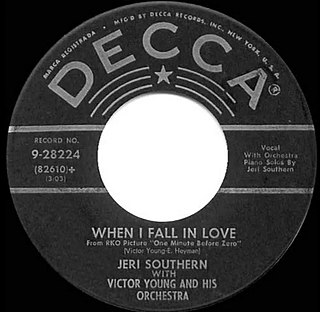
"When I Fall in Love" is a popular song, written by Victor Young (music) and Edward Heyman (lyrics). It was introduced in Howard Hughes' last film One Minute to Zero as the instrumental titled "Theme from One Minute to Zero". Jeri Southern sang on the first vocal recording released in April 1952 with the song's composer, Victor Young, handling the arranging and conducting duties. The song has become a standard, with many artists recording it; the first hit version was sung by Doris Day released in July 1952.
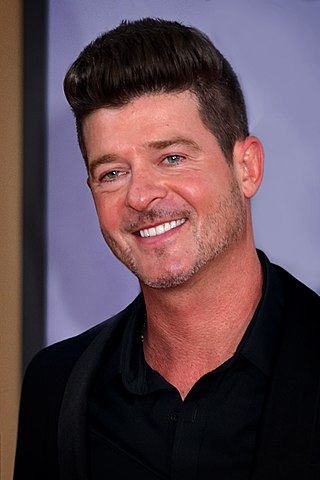
Robin Alan Thicke is an American singer, songwriter and record producer. He is best known for his 2013 hit single "Blurred Lines", which is one of the best-selling singles of all time. At the 56th Annual Grammy Awards, he received nominations for Record of the Year and Best Pop Duo/Group Performance.
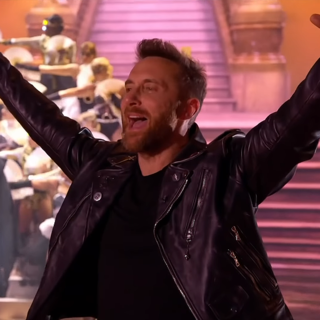
Pierre David Guetta is a French DJ and record producer. He has sold over 10 million albums and 65 million singles globally, with more than 14 billion streams. In 2011, 2020, 2021 and 2023, Guetta was voted the number one DJ in the DJ Mag Top 100 DJs poll. In 2013, Billboard ranked his song "When Love Takes Over" as the number one dance-pop collaboration of all time.
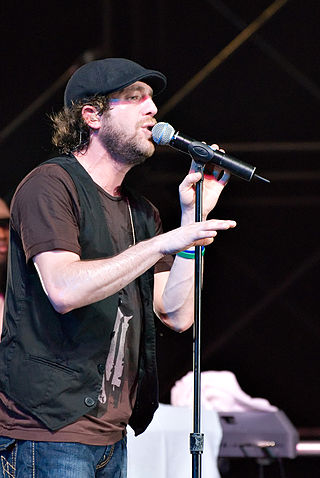
Efraym Elliott Yamin is an American singer known for his hit single "Wait for You" and for placing third on the fifth season of American Idol.

"Too Much Love Will Kill You" is a song written by British guitarist Brian May of Queen, Frank Musker and Elizabeth Lamers. The song reflected the breakdown of May's first marriage and attraction to his future wife, Anita Dobson. It was first recorded by Queen around 1988 or before, and was intended to be on the band's The Miracle album in 1989, but did not make the cut due to legal disputes following the band's decision that all songs on the album would be written by the group as opposed to individuals.
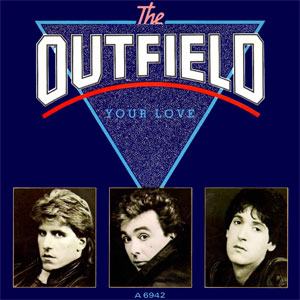
“Your Love” is a song by the English rock band the Outfield, taken from their 1985 debut album Play Deep, released in early 1986 and written by guitarist John Spinks. In the United States, the song reached number six on the Billboard Hot 100 and number seven on the Album Rock Tracks chart in 1986.
I Love You, I Love U, or I Luv U may refer to:

Kenneth Mobley Brice Jr., known professionally as Lee Brice, is an American country music singer and songwriter, signed to Curb Records. Brice has released five albums with the label: Love Like Crazy, Hard to Love, I Don't Dance, Lee Brice. and Hey World. He has also released eighteen singles, of which eight have reached number one on Billboard Country Airplay: "A Woman Like You", "Hard to Love", "I Drive Your Truck", "I Don't Dance", "Rumor", "I Hope You're Happy Now", "One of Them Girls" and "Memory I Don't Mess With". He has also charted within the top 10 with "Love Like Crazy", "Parking Lot Party", "Drinking Class", and "That Don't Sound Like You". "Love Like Crazy" was the top country song of 2010 according to Billboard Year-End, and broke a 62-year-old record for the longest run on the country chart.
Two Hearts or 2 Hearts may refer to: